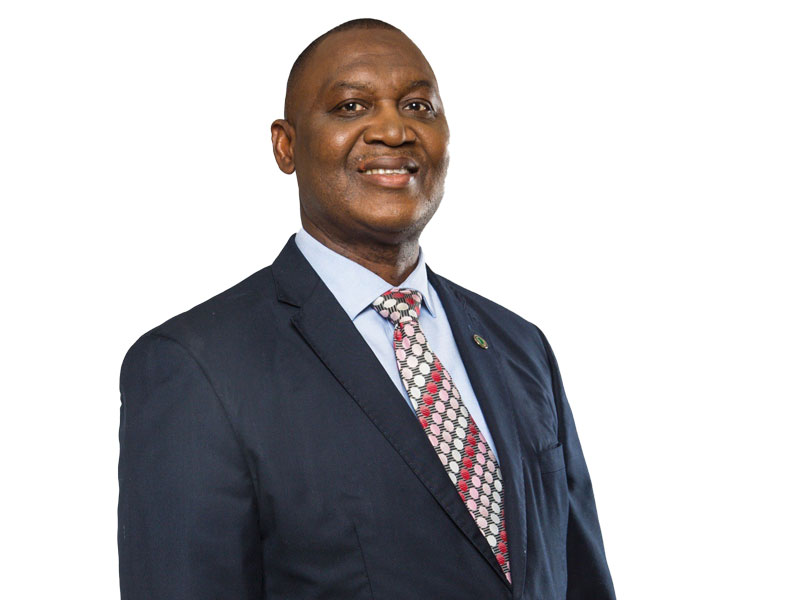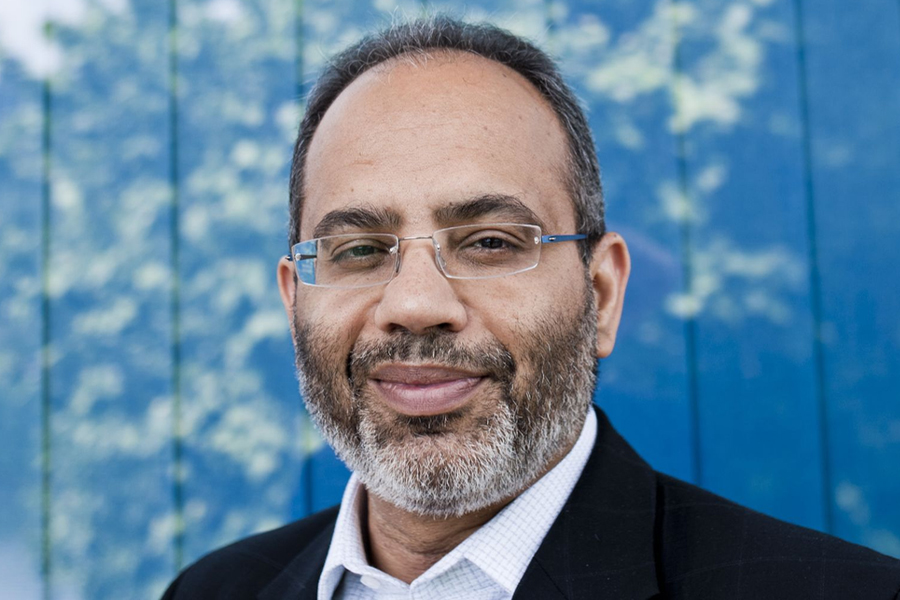
Exclusive Interviews | Dec 11,2021
Oct 25 , 2025
By Carlos Lopes
The upcoming United Nations Climate Change Conference (COP30) will be the first to take place in the Amazon, sending a powerful symbolic message about the central role developing economies should play in the global response to the climate crisis. But at a time of geopolitical fragmentation and low trust in multilateralism, symbolism is not enough.
Developing economies should plan and propel the green transition. Africa is no exception. So far, the continent’s climate narrative has been one of victimhood. It contributes less than four percent of global greenhouse-gas emissions, but it is highly vulnerable to the effects of climate change. This disparity fueled the calls for "climate justice" that helped to produce ambitious climate-financing pledges from the industrialised economies at past COPs.
But with those pledges going unfulfilled, and Africa's climate-finance needs rising fast, moral appeals are clearly not enough. A shift to a more strategy-oriented discourse is already underway.
The Second Africa Climate Summit (ACS2), which took place in Addis Abeba last month, positioned the continent as a united actor capable of shaping global climate negotiations. It also produced several initiatives, such as the Africa Climate Innovation Compact and the African Climate Facility, that promise to strengthen Africa's position in efforts to ensure a sustainable future.
Instead of continuing to wait for aid, Africa is now seeking to attract investment in its green transition, not because rich countries "owe" Africans, though they do, but because Africa can help the world tackle climate change. However, success will require progress on four fronts, all of which will be addressed at COP30.
The first is the cost of capital. Because systemic bias is embedded in credit-rating methodologies and global prudential rules, African countries face the world's highest borrowing costs. This deters private capital, without which climate finance cannot flow at scale. While multilateral development banks (MDBs) can help to bridge the gap, they typically favour loans, which increase African countries' already formidable debt burdens, rather than grants.
At COP29, developed economies agreed to raise "at least" 300 billion dollars per year for developing-country climate action by 2035, as part of a wider goal for all actors to mobilise at least 1.3 trillion dollars per year. If these targets are to be reached, however, systemic reform is essential. This includes changes to MDB governance to give African countries a greater voice and increased grant-based financing. Reform also needs to include recognition of African financial institutions with preferred creditor status, and the cultivation of a new Africa-led financial architecture that lowers the cost of capital.
The second area where progress is essential is carbon markets. Despite its huge potential for nature-based climate solutions, Africa captures only 16pc of the global carbon-credit market. The projects are largely underregulated and poorly priced, with limited community involvement. Africa is now at risk of falling into a familiar trap where it supplies cheap offsets for external actors' emissions. It reaps few benefits for its people.
While some African countries are developing their own carbon market regulations, a fragmented system will have a limited impact. What Africa needs is an integrated carbon market, regulated by Africans, to ensure project quality, set fair prices, and channel revenues toward local development priorities, including conservation, renewable energy, and resilient agriculture. This system should be linked with Article 6 of the Paris Climate Agreement, which aspires to facilitate the voluntary trading of carbon credits among countries.
The third imperative for Africa at COP30 is to redefine adaptation. Rather than treating it primarily as a humanitarian project, governments should integrate adaptation into their industrial policies. After all, investment in climate-resilient agriculture, infrastructure, and water systems generates jobs, stimulates innovation, and spurs market integration.
By linking adaptation to industrialisation, Africa can continue what it started at ACS2, shifting the narrative from vulnerability to value creation. Africa should push for this approach to be reflected in the indicators for the Global Goal on Adaptation, which are set to be finalised at COP30. The continent's leaders should also call for adaptation finance to be integrated into broader trade and technology frameworks.
The final priority area for Africa at COP30 is critical minerals. Africa possesses roughly 85pc of the world's manganese, 80pc of its platinum and chromium, 47pc of its cobalt, 21pc of its graphite, and six percent of its copper. In 2022, the Democratic Republic of the Congo (DRC) alone accounted for over 70pc of global cobalt production.
But Africa knows all too well that natural-resource wealth does not necessarily translate into economic growth and development. Only by building value chains on the continent can Africa avoid the "resource curse" and ensure that its critical mineral wealth generates local jobs and industries. This imperative should be reflected in discussions within the Just Transition Work Programme at COP30.
These four priorities are linked by a deeper philosophical imperative. The extractive logic of the past, in which industrialisation depended on exploitation and destruction, should give way to a more holistic, just, and balanced approach, which recognises that humans belong to nature, not the other way around. Africa can help to lead this shift, beginning at COP30.
The barriers to progress are formidable. China likes to tout South-South solidarity, but it does not necessarily put its money where its mouth is. The European Union (EU) is struggling to reconcile competing priorities and cope with political volatility. The United States (US) will not attend COP30 at all, potentially emboldening others to resist ambitious action. If consensus proves elusive, parties might pursue "mini-lateral" deals, which sideline Africa.
When it comes to the green transition, Africa's interests are everyone's interests. If the continent is locked into poverty and fossil-fuel dependency, global temperatures will continue to rise rapidly. But if Africa is empowered to achieve green industrialisation, the rest of the world will gain a critical ally in the fight for a sustainable future.
PUBLISHED ON
Oct 25,2025 [ VOL
26 , NO
1330]


Exclusive Interviews | Dec 11,2021

Radar | Jun 30,2024

Covid-19 | Apr 04,2020

My Opinion | Jan 07,2024

Radar | Aug 01,2020

Viewpoints | Feb 24,2024

Viewpoints | May 18,2024

My Opinion | Mar 09,2024

My Opinion | Apr 13,2024

Commentaries | Jul 13,2020

Photo Gallery | 177117 Views | May 06,2019

Photo Gallery | 167329 Views | Apr 26,2019

Photo Gallery | 157942 Views | Oct 06,2021

My Opinion | 136960 Views | Aug 14,2021
Commentaries | Oct 25,2025

Dec 22 , 2024 . By TIZITA SHEWAFERAW
Charged with transforming colossal state-owned enterprises into modern and competitiv...

Aug 18 , 2024 . By AKSAH ITALO
Although predictable Yonas Zerihun's job in the ride-hailing service is not immune to...

Jul 28 , 2024 . By TIZITA SHEWAFERAW
Unhabitual, perhaps too many, Samuel Gebreyohannes, 38, used to occasionally enjoy a couple of beers at breakfast. However, he recently swit...

Jul 13 , 2024 . By AKSAH ITALO
Investors who rely on tractors, trucks, and field vehicles for commuting, transporting commodities, and f...

Oct 25 , 2025
The regulatory machinery is on overdrive. In only two years, no fewer than 35 new pro...

Oct 18 , 2025
The political establishment, notably the ruling party and its top brass, has become p...

Oct 11 , 2025
Ladislas Farago, a roving Associated Press (AP) correspondent, arrived in Ethiopia in...

Oct 4 , 2025
Eyob Tekalegn (PhD) had been in the Governor's chair for only weeks when, on Septembe...

Oct 25 , 2025 . By YITBAREK GETACHEW
Officials of the Addis Abeba's Education Bureau have embarked on an ambitious experim...

Oct 26 , 2025 . By YITBAREK GETACHEW
The federal government is making a landmark shift in its investment incentive regime...

Oct 26 , 2025 . By NAHOM AYELE
The National Bank of Ethiopia (NBE) is preparing to issue a directive that will funda...

Oct 26 , 2025 . By SURAFEL MULUGETA
A community of booksellers shadowing the Ethiopian National Theatre has been jolted b...